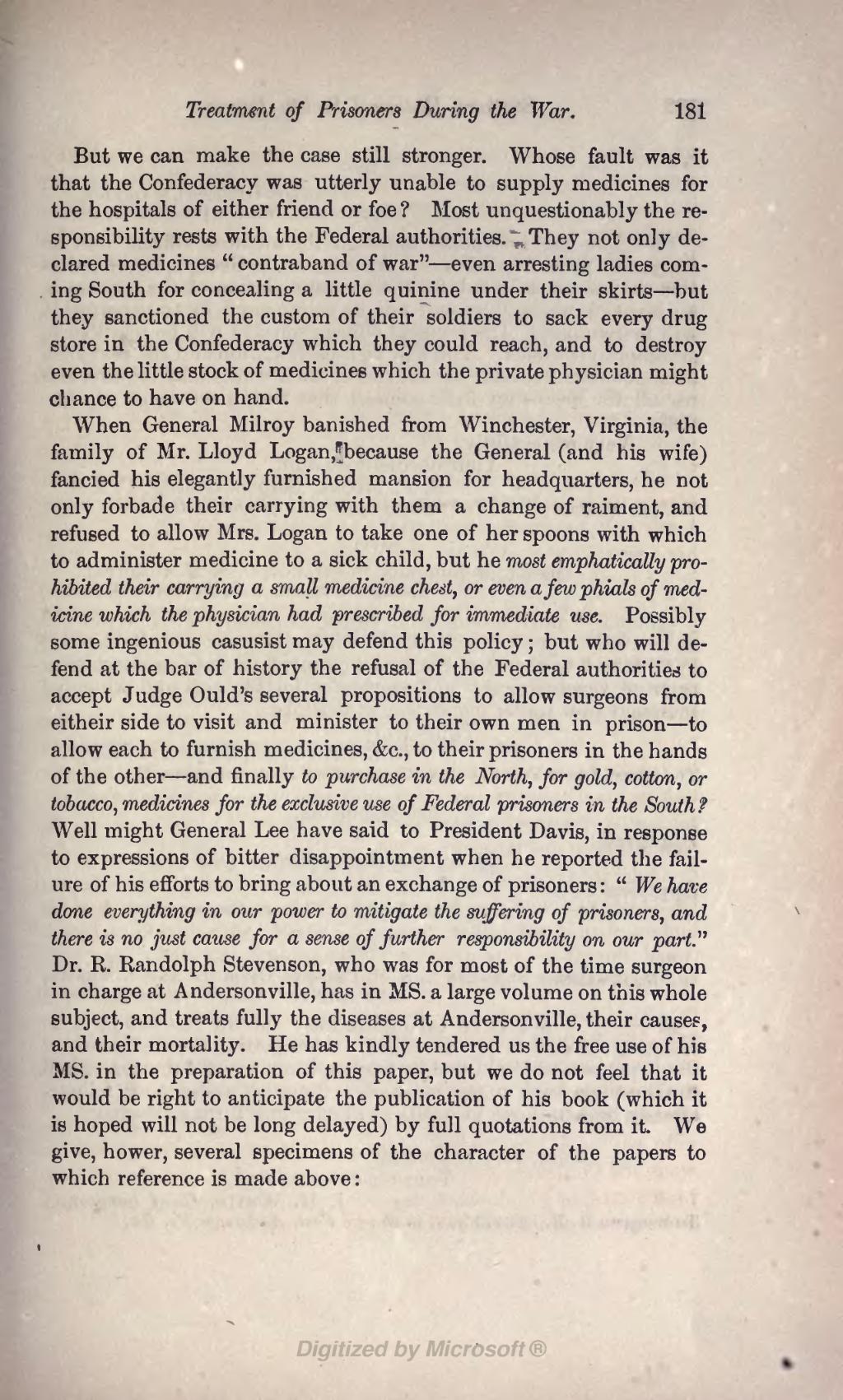But we can make the case still stronger. Whose fault was it that the Confederacy was utterly unable to supply medicines for the hospitals of either friend or foe? Most unquestionably the responsibility rests with the Federal authorities. They not only declared medicines "contraband of war"—even arresting ladies coming South for concealing a little quinine under their skirts—but they sanctioned the custom of their soldiers to sack every drug store in the Confederacy which they could reach, and to destroy even the little stock of medicines which the private physician might chance to have on hand.
When General Milroy banished from Winchester, Virginia, the family of Mr. Lloyd Logan because the General (and his wife) fancied his elegantly furnished mansion for headquarters, he not only forbade their carrying with them a change of raiment, and refused to allow Mrs. Logan to take one of her spoons with which to administer medicine to a sick child, but he most emphatically prohibited their carrying a small medicine chest, or even a few phials of medicine which the physician had prescribed for immediate use. Possibly some ingenious casusist may defend this policy; but who will defend at the bar of history the refusal of the Federal authorities to accept Judge Ould's several propositions to allow surgeons from either side to visit and minister to their own men in prison—to allow each to furnish medicines, &c., to their prisoners in the hands of the other—and finally to purchase in the North, for gold, cotton, or tobacco, medicines for the exclusive use of Federal prisoners in the South? Well might General Lee have said to President Davis, in response to expressions of bitter disappointment when he reported the failure of his efforts to bring about an exchange of prisoners: "We have done everything in our power to mitigate the suffering of prisoners, and there is no just cause for a sense of further responsibility on our part." Dr. R. Randolph Stevenson, who was for most of the time surgeon in charge at Andersonville, has in MS. a large volume on this whole subject, and treats fully the diseases at Andersonville, their causes, and their mortality. He has kindly tendered us the free use of his MS. in the preparation of this paper, but we do not feel that it would be right to anticipate the publication of his book (which it is hoped will not be long delayed) by full quotations from it. We give, hower, several specimens of the character of the papers to which reference is made above:
